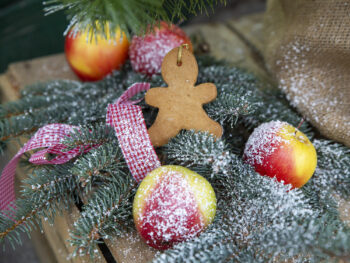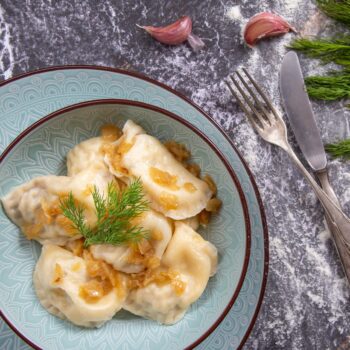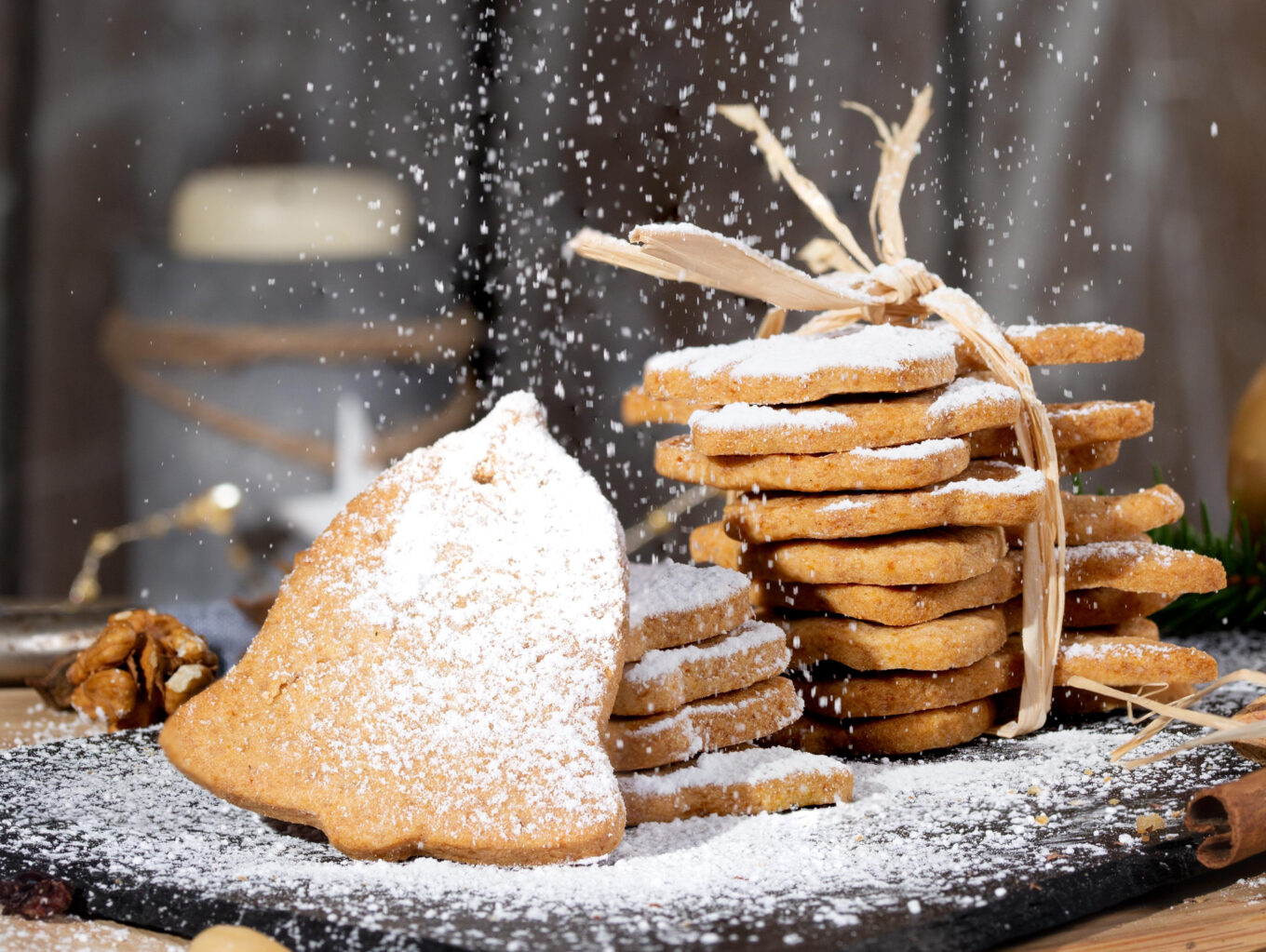Christmas is a special time that many of us look forward to all year round, especially children. Of course, for them, the greatest charm of Christmas are gifts, the Christmas tree and Santa Claus. Adults, on the other hand, focus more on preparations, preparing appropriate dishes, decorating the apartment or maintaining the Christmas customs they know from their childhood. Which Christmas traditions are still the most popular in Polish homes and which have become a thing of the past? In this article we talk about the most important of them.
Christmas Eve traditions and symbols
Breaking the wafer
Christmas Eve is the culmination of Christmas celebrations and most of the rituals and customs are assigned to this day. Although each family may have its own Christmas Eve habits and practices, e.g. related to decorating the Christmas tree or giving gifts, in Polish tradition the most important thing on this evening is sharing the wafer with loved ones and making wishes. This gesture has a symbolic meaning - it serves mutual forgiveness and reconciliation, and sometimes it is preceded by prayer or reading a fragment of the Gospel. Only then do all those gathered sit down for Christmas Eve dinner. Moreover, it must be dark when the first star in the sky shines.
Christmas Eve table and 12 dishes
The traditional Christmas Eve table is covered with a white tablecloth and hay is placed under it, symbolizing the poverty into which Jesus was born. This custom is still cultivated in many homes, but some people are moving away from this classic approach and choosing more modern arrangements for the Christmas Eve table.
Another important Polish custom is the preparation of traditional, meatless Christmas Eve dishes, numbering at least 12 - which in this case is a symbol of the 12 apostles with whom Jesus ate the last supper. Moreover, according to custom, each dish must be at least tried.
Which Christmas Eve dishes are most common on our tables? These certainly include red borscht with dumplings, carp, herring in various forms, dumplings with cabbage and mushrooms, dried compote, patties, pasta with poppy seeds, and also Christmas cakes.
When it comes to the Christmas Eve table, it is worth mentioning the custom of placing an additional table setting. This is a symbolic place for a newcomer who is invited to have dinner together. This gesture means hospitality and openness of the house to other people.
Decorating the Christmas tree
It is difficult to imagine Christmas without a Christmas tree, which is present not only in our homes, but also in shops, schools and offices. We usually decorate it with baubles, chains and lights, but in some families it is customary to make decorations yourself from paper and tissue paper, as well as from gingerbread and fruit - just like in the old days.
In the Polish tradition, even before the appearance of the classic Christmas tree, rooms were decorated with a podłaźnica, i.e. a cut top of a spruce or pine tree. What's more, it was hung upside down from the ceiling, after being decorated with apples, nuts and other decorations made of tissue paper or straw.
Christmas presents
The custom of giving gifts is an integral part of Christmas - especially expected by the youngest. In Poland, the most common practice is leaving gifts under the Christmas tree, where everyone can find a gift for themselves. In most homes, parcels are unpacked on the same day, just after Christmas Eve dinner. If there are small children in the family, Santa Claus brings gifts, according to the parents' tradition. Sometimes he does it only at night, so in such a situation the household members look for gifts under the tree on Christmas morning.
Where does the tradition of giving gifts on Christmas come from? It is related to the gifts that the Wise Men from the East brought to Jesus. That is why in some countries children receive gifts only on January 6, i.e. Epiphany.
Old Polish Christmas customs
Apart from the traditions described above, still cultivated in most Polish homes, there are many customs that have already been forgotten. Most often, these were folk rituals, practiced mainly in villages. There is still a popular saying that on Christmas Eve animals can speak with human voices. However, according to old customs, they were farm animals that were fed with leftovers from dinner along with crushed wafer.
In the past, people attached great importance to what would happen on Christmas Eve. Their behavior was guided by the proverb - "As Christmas Eve, so all year round." Therefore, from the morning they tried to ensure the prosperity of themselves and their household. Children were admonished to be good, which would serve them well throughout the year. It was also important who would visit the cottage first on Christmas Eve - a man or a woman. If it was done by a man, it was a positive omen, but if it was a woman, it was unfortunately not.
The custom of singing carols, still known today, was also very popular. Although now it has a different dimension than before. Just after Christmas, a group of carolers wandered around the village dressed as various characters, e.g. animals, kings or angels. They walked with the star of Bethlehem, the head of a turtle or other masquerades. They went to houses, sang, acted out Christmas scenes, expressed wishes to the hosts and in return asked for a donation, i.e. for a Christmas carol. Most often, they received small money and Christmas food.
On the occasion of the upcoming Christmas, on behalf of our entire team at Cukiernia Jacek Placek, we would like to wish you warm wishes: health, happiness, peace, joy of meetings with loved ones, a beautiful Christmas tree and dream gifts! And what's more, enjoy the most delicious baked goods on your holiday table! Happy Christmas!




